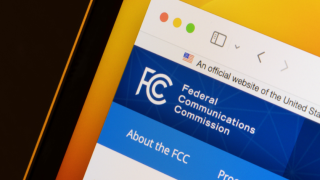The National Space-Based Positioning, Navigation and Timing Executive Committee (EXCOM) has been testing LightSquared’s proposals to deploy a hybrid satellite-terrestrial broadband network, using an L-band frequency band adjacent to the global positioning system (GPS) frequencies.
EXCOM has conducted “extensive testing and analysis” on 92 different types of GPS receivers, due to concerns that LightSquared’s network would cause harmful interference to GPS receivers. It found interference problems with 75% of them. The final decision on the future of the LightSquared network rests in the hands of the FCC, but EXCOM’s conclusions will prove significant in the decision-making process.
EXCOM reported its findings in a memo to Lawrence Strickling, the assistant secretary for communications and information, saying: “It is the unanimous conclusion of the test findings by EXCOM agencies that both LightSquared’s original and modified plans for its proposed mobile network would cause harmful interference to many GPS receivers.”
LightSquared has continued to protest the testing process, complaining of the “inappropriate involvement of the GPS manufacturers, lax controls, obvious bias, lack of transparency and unexplained delays”. Despite its disapproval, it has set out a “phase 2 test plan”, which – with a note of desperation – it proposes can be completed by February 29 2012.
The new test plan seems to hold no weight with EXCOM, which concluded: “There appear to be no practical solutions or mitigations that would permit the LightSquared broadband services, as proposed, to operate in the next few months or years without significantly interfering with GPS.”
Catherine Haslam, analyst of wholesale telecoms at Ovum, commented: “In terms of the FCC, there’s either interference or there’s not. They’ve set a limit of 1dB, which is very low. I think LightSquared always felt that this is something they can fix. They may even have assumed that because the FCC had cleared the licence, there wasn’t a problem. But basically, this is a major problem.”
LightSquared has continued to sign up customers throughout the battle to secure its network, enlisting its 37th customer, Hometown Telecom, in mid-January, as well as agreements to provide 4G mobile broadband services with Best Buy and Leap Wireless. But if the FCC rules against LightSquared, such support could soon become meaningless.
Sprint Nextel is crucial in the equation, as the two companies have signed a 15-year agreement to share LTE spectrum and equipment. Sprint had originally given LightSquared until the end of 2011 to obtain clearance to operate its network from the FCC. When LightSquared missed this deadline, Sprint granted a 30-day extension giving LightSquared until 30 January 2012. It is unclear whether Sprint will continue to show patience, or whether it will go through with its threat to terminate the agreement.
According to its financial reports, LightSquared lost $427 million in 2011, although it claims that it has enough money for the next several quarters. “But if the reciprocal agreement with Sprint falls through, LightSquared really hasn’t got a hope,” says Haslam. “From its business plans, LightSquared is looking to make 50% of its revenue from the carrier markets. If it loses some of these big customers, there will be a massive hole in LightSquared’s business plan. I can’t see a way forward for them after that.”
The collapse of the agreement would also have a significant impact on Sprint, as LightSquared was offering a quick and easy way to get its LTE services up and running. Haslam points out that because LightSquared’s LTE operates on a different spectrum band to anything else in the US, this would allow Sprint to build in more recognised LTE bands where they will have better economies of scale and where there will be more devices available. “It would harm Sprint because they’re sharing the cost of their LTE roll out with LightSquared. They will have a higher cost which may bring into question some of their aggressive roll out plans. But in terms of its proposition, I’m not sure it will have a massive impact.”
Meanwhile, Dish Network, which owns 40MHz of spectrum in the 2GHz band, wants to build an LTE-Advanced network to be launched by 2014 and is currently seeking FCC approval. Whether a cable company will succeed in capturing this market remains to be seen, but rumours are spreading that AT&T is considering a form of partnership with Dish. Given that AT&T has recently filed to the FCC to surrender a portion of its own spectrum holdings to Deutsche Telekom, following its recent failed T-Mobile takeover bid, the battle for spectrum in the US is likely to influence the shape of the market for some time to come.




